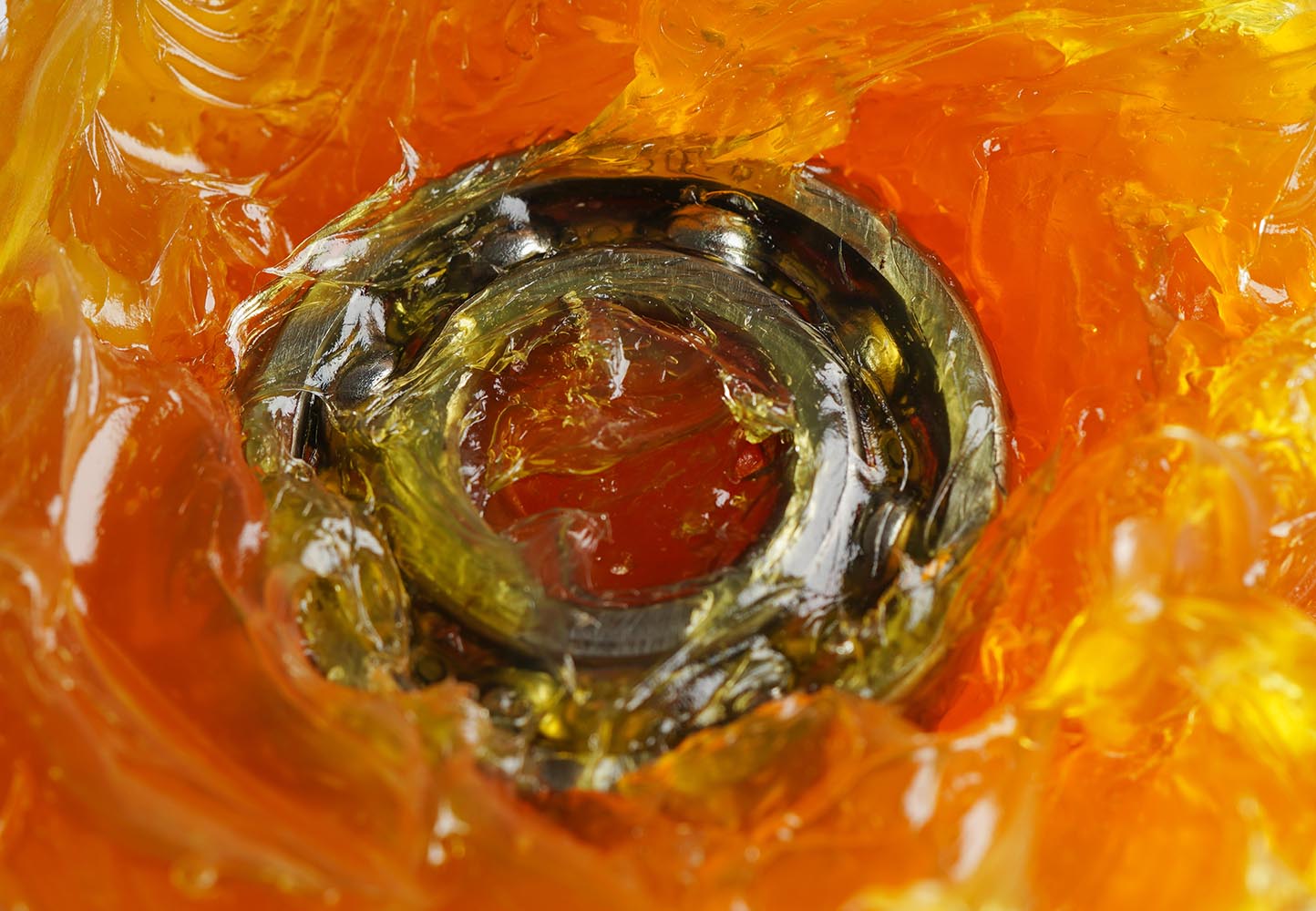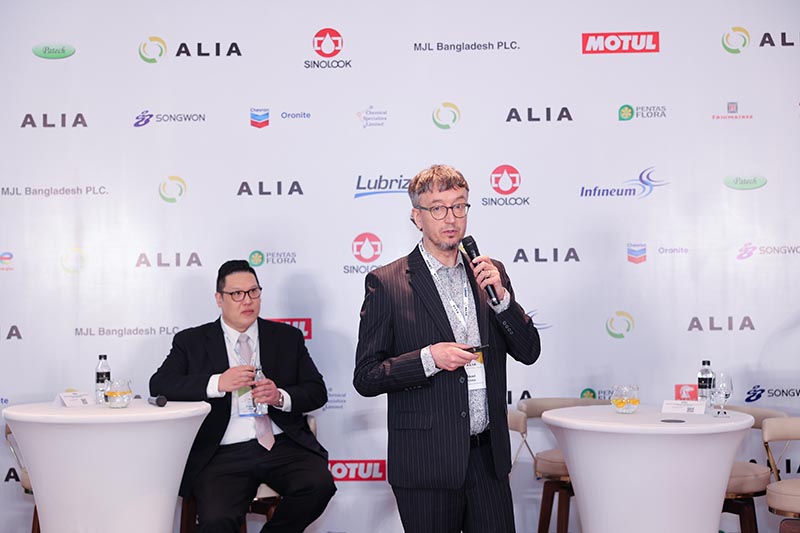
Shift in lubricating grease industry: Beyond lithium greases
Greases made with simple lithium soap thickeners first appeared in the 1940s. Since then, lithium greases have dominated the world of grease lubrication. Known for their versatility, they work well with a variety of base fluids and operate effectively across a wide range of conditions and temperatures. Lithium greases have long been favoured for their advantageous performance-to-cost ratio and have been prominent in the majority of original equipment manufacturers’ (OEM) specifications.
Lubricating greases utilising lithium soap as a thickener have maintained such a stronghold that there has been limited incentive to develop alternatives, says Mikael Kruse, group product manager (EU) at AXEL Christiernsson International AB, a leading lubricating grease manufacturer in Europe and the U.S.A., headquartered in Sweden. Industries have been reluctant to invest resources in the exploration of different products.
The grease situation has been stable for a very long time. Until now.
Kruse highlighted a “giant in decline” during the Member-to-Member Sharing Session of the Asian Lubricants Industry Association (ALIA) on March 5, 2024 in Ho Chi Minh City, Vietnam. He stressed that the current outlook for lithium greases is unfavourable, pre-empting a significant shift in the grease landscape.

The supply outlook for lithium is a topic of increasing importance due to the growing demand for lithium-ion batteries in electric vehicles (EVs), energy storage systems, and various electronic devices. Lithium, one of the 34 critical raw materials (CRM) identified by the European Union, has experienced price volatility due to fluctuations in supply and demand dynamics. The demand for lithium is expected to continue rising sharply in the coming years, driven mainly by the expansion of the EV market and the need for renewable energy storage solutions.
Kruse outlined an 8% decline in the utilisation of lithium greases in the National Lubricating Grease Institute (NLGI) Grease Production Survey from 2019 to 2022. Conventional lithium greases experienced a 7% reduction, alongside a 1% decline in lithium complex greases. There has been an emergence of new and promising alternatives. Anhydrous calcium greases have seen a notable increase of 5.5%, while polyurea (PU) and calcium sulfonate greases have seen a slight uptick of 1%.
During the recently concluded F+L Week 2024 Conference & Exhibition in Ho Chi Minh City, Vietnam, Avelyn Lim of Dow Industrial Solutions Singapore described a promising new PU production process with preformed PU thickener. The winner of the Best Poster Award at F+L Week 2024, Lim said this innovative approach offers several advantages over conventional PU grease production methods and can assist in satisfying increasing demands for high-performance grease in high-growth applications such as bearings, constant velocity joints in steel plants, and electric motors.

A simplified, cost-effective process utilises a metal soap grease kettle without requiring additional systems. Lim noted enhanced supply chain flexibility by offering local grease blending options. In addition, the PU thickener is stable with a long shelf life and easy storage.
The primary catalyst of disruption to the status quo is the rise of electric vehicles. EVs demand less grease, owing to their smoother operation, simplified mechanical architecture, direct drive systems, reduced friction and heat generation, and regenerative braking technology.
However, the driving force is increasing competition for lithium, which is one of the key components in EV batteries. The purchasing power of the grease industry has significantly diminished, says Kruse. While the industry previously consumed around 30% of all lithium, demand has dwindled to closer to 3%, he says.
In addition, lithium supply is restricted to certain regions with a limited number of suppliers. Availability is susceptible to politics and unrest, posing risks to both cost and supply in affected regions. Kruse observed that obtaining materials and deliveries on time has become increasingly challenging, as the grease industry is no longer as valuable a customer as it once was. Furthermore, he emphasised the high, unstable and unpredictable cost of lithium, which is heavily influenced by the battery industry.
Around 70% of grease applications can be fulfilled by multi-purpose greases, with high-performance greases (20%) and specialty greases (10%) covering the remaining applications. This distribution is consistent across most segments.
Multi-purpose greases predominantly consist of conventional lithium greases. Fortunately, there is a readily available alternative in anhydrous calcium, says Kruse. Anhydrous calcium offers equal and in some cases superior performance. It is also compatible with existing greases, eliminating the need for excessive and frequent cleaning.
When it comes to high-performance greases, it is a different story, says Kruse.
There isn’t a single alternative with the same versatility as the lithium complex greases commonly used in these applications. Alternatives include calcium sulfonate complex, PU and aluminium complex. Selecting the appropriate grease depends on the specific task at hand. Kruse advises spending time understanding the requirements of the application to make an informed choice.
For instance, in situations involving high temperatures, high loads and wet conditions, calcium sulfonate complex greases are often recommended. For electric vehicles, PU greases are notably more effective. Intense developments concerning grease thickener technology are underway within the grease community, says Kruse.
Specialty greases are the least affected by declines in lithium grease usage, he says. These greases account for a smaller proportion of the market and there are a variety of options available. Specialty greases tend to be high-value, high-margin products that are developed to perform specific tasks. Alternatives include calcium sulfonate complex, PU, aluminium complex and novel thickeners. The greatest need for replacement grease technologies lies in the cheaper products, specialty greases remain somewhat insulated from these changes, suggests Kruse.
There is growing emphasis on sustainability within the lubricant supply chain. The AXEL Christiernsson representative noted sustainability challenges in both the extraction and transportation phases of lithium grease production. Additionally, Kruse addressed concerns regarding the biodegradability of lithium greases, rendering them unsuitable for total loss applications, and pending legislation on toxicity issues.
Despite the importance of sustainability, it is not as simple as switching to a sustainable grease. The same product can be used in different applications and have dissimilar effects on sustainability. It is vital to understand how the product is going to be utilised to appreciate the sustainability impact.
Kruse stresses that the sustainability of individual applications is determined by the combined system, not solely the grease itself. He underscored the need to consider the machine component, such as bearing production, the impact on energy use, and the appropriateness and usage of the machine lubricant.
In most cases, the dominant factor affecting sustainability is frictional power loss, Kruse said, highlighting research by SKF, one of the world’s leading manufacturers of bearings, based in Sweden.Thus, the ability to save friction and to reduce energy consumption holds paramount importance. During his presentation, Kruse offered a simple guide to assist in the selection of grease.
However, he acknowledges the challenges surrounding customer willingness to adopt sustainable solutions. For so long, lithium greases have proven to be effective yet affordable. Whether consumers are open to paying the cost for sustainable alternatives remains to be seen. Even cheaper biodegradable greases can be three to four times more expensive, posing a significant challenge for consumers.








